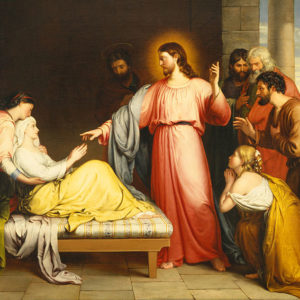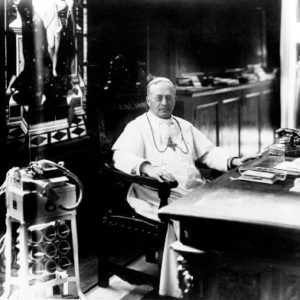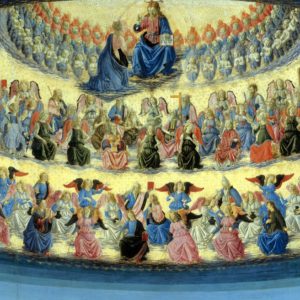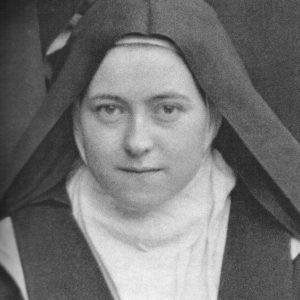A common complaint against Catholicism is that its view of the spiritual life is too difficult, that it over-complicates Christianity and doesn’t trust enough in the finished work of Christ on the Cross. That’s an appealing complaint, since it proposes a lighter, easier Christianity. But it’s a view we should be extremely suspicious of, given everything else we know about reality. So here are six observations that I think have some bearing on how we think of salvation specifically and the spiritual life more generally:
Tag: faith
Were St. Peter and the Other Apostles Celibate?
One of the common arguments against clerical celibacy is that St. Peter, the leader of the Apostles and the first pope, was married. After all, Scripture refers to his having a mother-in-law (Matthew 8:14-15), and St. Paul (referring to Peter by his original Aramaic name, Cephas) defends his Apostolic authority in a verse usually translated “Do we not have the right to be accompanied by a wife, as the other apostles and the brethren of the Lord and Cephas?” (1 Corinthians 9:5). But let’s take a closer look at those passages, and find out what the New Testament REALLY has to say.
What’s the Biblical Model of Church Leadership?
Protestants often assume that the monarchical structure of the Catholic Church is due to Catholics relying too much on structure of the Roman Empire and not enough on the structure established in the Bible. Perhaps it would be better to say that it’s Protestants who are overly indebted to the structure of the United States and Western liberal societies, to the extent that they’ve ignored that God established a Kingdom, and not a Democracy. Consider how the People of God were governed throughout all of history.
A Timely Reminder
“The Church founded by the Redeemer is one, the same for all races and all nations. Beneath her dome, as beneath the vault of heaven, there is but one country for all nations and tongues; there is room for the development of every quality, advantage, task and vocation which God the Creator and Savior has… Continue reading A Timely Reminder
Want to Pray Well? Study Well
This afternoon, I gave a talk to the returning teachers at Christ the King on the virtue of study. I made four basic points:
1) Reason is good, and ordered towards God, since all truth is of the Holy Spirit.
2) Therefore, studiousness is a virtue that we ought to practice.
3) This is particularly true of Catholic school teachers, given their unique calling.
4) Studiousness must be rooted in prayer, and should help us to pray better.
Here’s the text of the full talk:
Five Reasons to Believe in the Assumption of Mary
Today is the Feast of the Assumption, in which we Catholics celebrate that the Virgin Mary, at the conclusion of her earthly life, was taken up into Heaven, body and soul. For Protestants and even many Catholics, it’s a hard doctrine to swallow. Here are five reasons that I believe in it (besides the fact that the Church infallibly teaches it).
The Spirituality of St. Thérèse of Lisieux, the Little Flower
St. Thérèse was only 24 years old when she died in 1897, but she quickly became one of the most famous Saints in the world. Pope St. John Paul II declared her a “Doctor of the Church” for her spiritual writings. So what can we learn from this St. Thérèse, the “Little Flower?” That’s the theme of this talk that I gave at Christ the King on July 26th. I look first at the way her holiness was tied to the holiness of her family (and the importance of living married life well) and then her distinctive teachings on prayer, especially her famous “Little Way,” that Pope Pius XI described as a sure path of salvation.
St. John Vianney on Prayer
St. Jean-Baptiste-Marie Vianney, a parish priest in a small town in France, became world famous and, after his death, was declared the patron saint of parish priests around the world. Pope John XXIII marked the 100th anniversary of his death with an encyclical on the priesthood, and Pope Benedict XVI proclaimed the Year for Priests in 2009 to commemorate the 150th anniversary of Vianney’s death. So what did this extraordinary parish priest have to say to laypeople about how to pray? Listen to this talk to find out!
How Do We Know Ignatius’ Letters are Genuine?
St. Ignatius of Antioch, a disciple of the Apostle John, wrote a series of letters somewhere about c. 107-110, en route to his martyrdom in Rome. These letters are richly Catholic, so much so that the Reformer John Calvin was convinced that they couldn’t be authentic. So how do we know that they are?
Holiness in Daily Life: St. Francis de Sales, Blessed John Henry Newman, and St. Josemaría Escrivá
Most of us aren’t called to be priests or monks or nuns, yet so many spiritual authors assume that their readers live in convents, monasteries, or rectories. So what about the spiritual life of everyone else? Here are three takes on holiness in daily life (from St. Francis de Sales, Blessed John Henry Newman, and… Continue reading Holiness in Daily Life: St. Francis de Sales, Blessed John Henry Newman, and St. Josemaría Escrivá









